Best Business Gas Cards EIN Only
Author: Nick Alex Gallo
January 23, 2026
11 min read
TABLE OF CONTENTS
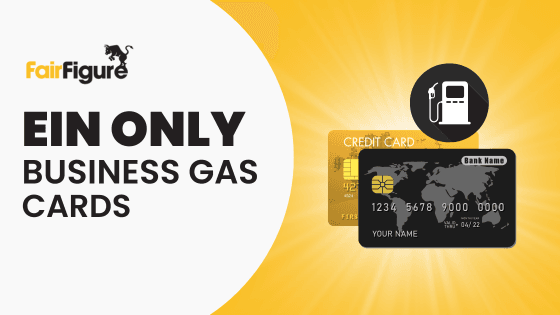
Start your credit building journey for your business

Business gas cards often give you the option to apply with your Employer Identification Number (EIN) instead of your Social Security Number (SSN). That can help you avoid signing a personal guarantee, which protects your personal credit score and finances.
Here are some of the best business gas cards with EIN only applications to consider pursuing in 2025.
Best Business Gas Cards EIN Only
Best EIN Only Business Gas Cards
1. Chevron and Texaco
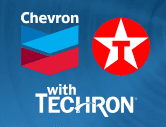
Chevron and Texaco offer three different gas cards: the Business Card, Business Access Card, and Business Access Flex Card. You can apply for all three with your EIN only, but they may require a personal guarantee depending on your qualifications.
Chevron and Texaco use WEX Inc. to administer their business credit card program, which generally reports all accounts to D&B and Experian Business, but not Equifax.
While they share the same reporting policies, the cards differ significantly. Here are the most notable considerations:
- Fees: Only the Business Access Card has potentially recurring fees. The first is a high-risk credit charge equal to 2% of your credit line, up to $199 per month. The second is a tax reclamation fee of up to $100 per month.
- Rebates: The Business Access and Business Access Flex cards offer rebates of up to 6¢ per gallon at Chevron and Texaco gas stations.
- Payment terms: Only the Business Access Flex card allows you to carry a balance over from one billing period to another. Any outstanding balance will accrue interest at a variable APR of the prime rate plus a margin of 15.99%.
Otherwise, all three cards offer the same visibility, spending, and account management features, including driver-specific controls like odometer readings at the pump and fuel purchase restrictions by product type.
2. Exxon Mobil

Exxon Mobil offers two business gas cards, called the BusinessPro Card and the FleetPro Card. Like Chevron and Texaco, it uses WEX to administer them, so you can apply online with your EIN only, though a personal guarantee may be necessary. In addition, they both report to D&B and Experian. However, the cards also have some notable differences. Here are some of their most significant features to consider:
- BusinessPro: This card is accepted at Exxon Mobil and 95% of other U.S. gas stations, but the latter feature requires a $40 setup fee and a $2 monthly fee per card. In terms of savings, it offers rebates of up to 6¢ per gallon.
- FleetPro: You can use this card at Exxon Mobil stations—including its 800+ commercial locations—and anywhere Mastercard is accepted. It doesn’t offer the same rebates, but there are no setup or monthly fees, and you get custom volume pricing on in-network gas purchases, with diesel-focused discounts.
The cards also differ somewhat in their reporting and supporting features. For example, only the FleetPro Card has its own mobile app and cash advance option, and only the BusinessPro Card allows contactless mobile payment at the pump.
3. Phillips 66
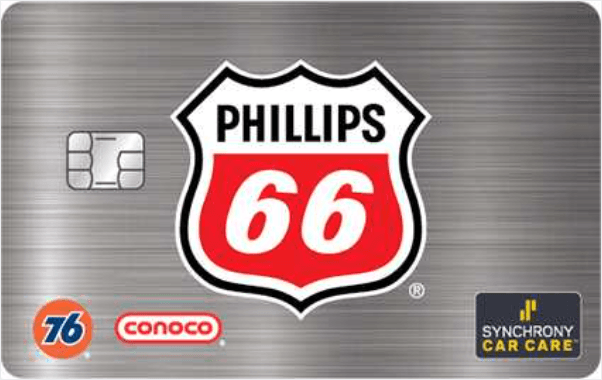
Phillips 66 now offers three business gas cards: the Commercial Card, the Fleet Card, and the Universal Card. Like many fuel brands, Phillips 66’s small business credit card issuer is WEX, so they report to D&B and Experian.
You can apply using your EIN only, but you typically must have at least three years in business and an established business credit history to avoid signing a personal guarantee.
The Commercial Card is the most straightforward option for a small business owner. It has no cash rewards or fees and is limited to the Phillips 66, Conoco, and 76 network, which is smaller than that of competitors like Shell and ExxonMobil.
The Fleet Card is designed for businesses with more vehicles. It offers volume rebates of up to 7¢ per gallon and more robust reporting features than the Commercial Card, as well as tax-exemption capabilities.
The Universal Card is for those who want to expand their gas station access beyond the Phillips 66 network. In addition to the same rebates as the Fleet card, it’s usable at 95% of retail fuel locations nationwide, including anywhere WEX is accepted.
However, you may need to pay a setup fee and a recurring monthly fee for each employee card.
Both the Fleet and Universal cards currently offer a promotional 10¢ per gallon rebate for your first six months.
4. Shell

Shell recently updated its business credit cards and now offers two different accounts. The first is the Shell Card Business—formerly known as the Shell Small Business Card— and the second is the Shell Card Business Flex.
The most notable difference between them is that the Flex card is usable at 95% of U.S. gas stations, while the other is only accepted at Shell stations. However, the cards also offer slightly different benefits.
Both provide a 25¢ per gallon rebate for the first six months, but the Flex card’s rebates top out at 5¢ per gallon thereafter and are limited to 25K gallons per billing cycle. The other card’s rebates can reach as much as 6¢ per gallon and have no monthly limit.
Previously, only one of the Shell cards allowed you to carry a balance over from one month to another. However, each business line now offers the option to apply for a Pay in Full card or a Pay Over Time card.
Presumably, the Pay Over Time option will have stricter qualification requirements. However, both should be accessible with your EIN only if your business has at least $1 million in annual revenue and a solid business credit history.
Otherwise, you may need to sign a personal guarantee to apply. Regardless, Shell’s cards are great for building business credit, as the vendor reports to all three business credit bureaus, including D&B, Experian Business, and Equifax Business.
For a true no PG credit card, consider FairFigure’s capital card.
5. Speedway
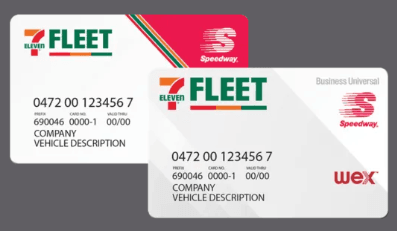
Speedway’s two business gas cards include the Business Fleet Card and the Business Universal Card. The Fleet Card is best for those who want to maximize savings, while the Universal Card is better for flexibility.
Specifically, the Fleet Card has no setup or recurring fees, but you can only use it in the Speedway and 7-Eleven network. Like the Phillips 66 network, it’s smaller than some others at only around 7,500 stations nationwide.
Meanwhile, the Universal Card is accepted at 95% of gas stations in the United States, but it has a $40 setup fee and a $2 monthly fee per card. Both cards offer rebates of up to 5¢ per gallon at Speedway and 7-Eleven.
Speedway is another brand that uses WEX to administer its program, so you can apply with your EIN only and avoid a personal guarantee with sufficient business operations and credit history. WEX also reports your activities to D&B and Experian Business.
In addition, both cards come with identical account management and accounting, visibility, and security features.
6. Sunoco

Sunoco’s business gas card program mirrors Speedway’s. It offers two cards: the Business Fleet Card and the Fleet Universal Card. As you can probably guess, Sunoco also uses WEX to facilitate its program.
You can apply for both cards with your EIN only—as long as your business is sufficiently well established—and your activities will eventually appear in your D&B and Experian business credit reports.
Sunoco’s gas cards also have pros and cons that should sound familiar. The Business Fleet Card has no setup or monthly fees but is only usable at Sunoco stations, while the Universal Fleet Card charges both but is usable at 95% of gas stations.
However, one thing that separates Sunoco’s cards is that they currently offer a 15¢ per gallon rebate at Sunoco-branded gas stations for the first six months. Afterward, their rebates can be as much as 6¢ per gallon.
Both cards offer WEX’s standard fleet and account management tools.
7. Valero
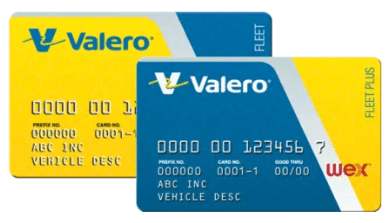
Valero is the last brand on the list that uses WEX to issue its business fuel card accounts and administer the surrounding program. It offers two cards: The Valero Fleet Card and the Valero Fleet Plus Card.
The two cards have a similar dynamic to the card offerings at other WEX partners. The Fleet Card is only usable at the 5,000 Valero locations in the U.S., but it doesn’t charge any setup or monthly fees.
Meanwhile, the Valero Fleet Plus card does charge fees, but you can use it at roughly 95% of gas stations in the country.
However, there are some additional differences between them. Most notably, the Fleet Card allows you to carry a balance from one month to the next, while the Fleet Plus Card requires you to pay your balance in full each month.
There isn’t a promotional offer currently, but both cards offer rebates of up to 8¢ per gallon at Valero gas stations, as well as discounts on purchases like auto parts and hotels. In addition, they offer the typical WEX account management features.
8. Fuelman
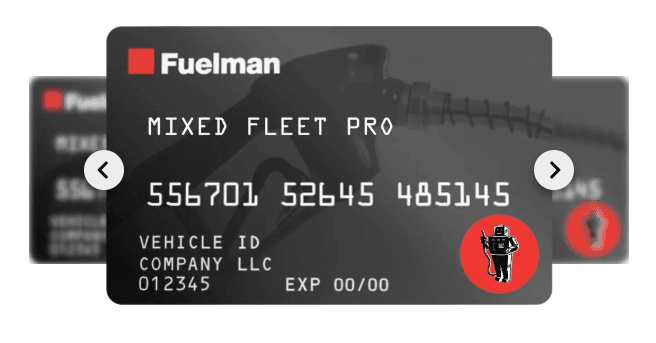
Fuelman offers several different fleet cards, including the Fuelman Mixed Fleet Card, Fuelman Diesel Fleet Card, and Fuelman Mastercard.
The Mixed Fleet Card is designed for those whose fleets require both diesel and unleaded fuel. It offers rebates of 8¢ per gallon at the 40,000+ locations in Fuelman’s discount network.
The Diesel Fleet Card is best for those whose fleets only need diesel fuel, as it offers rebates of 12¢ per gallon at the locations in Fuelman’s network.
Finally, the Fuelman Mastercard is for those who need the flexibility to gas up at any station that accepts Mastercard. It offers 3¢ per gallon on unleaded and diesel fuel.
In addition to choosing a Fuelman card, you must also select a card membership plan. The options include Basic, Pro, and Enterprise, which cost $39, $59, and $99 per month. This choice affects your access to account and fleet management features.
As usual, each Fuelman account is an EIN only business credit card if your small business is sufficiently qualified. But unlike WEX, Fuelman reports to each major business credit bureau, including D&B, Experian Business, and Equifax Business.
Build Business Credit With FairFigure
Business gas cards aren’t the only way to build business credit. FairFigure’s services are also a powerful resource, providing a variety of features designed to help you monitor and improve your business credit score as efficiently as possible.
When you sign up, you get access to not just one, but two tradelines. That includes a financial tradeline through the FairFigure Capital Card. You’ll also receive business and personal credit monitoring, plus access to our unique Business Credit Corrector tool.

Best of all, you can qualify with your EIN only—no personal guarantee required. All you need is $2,500 in monthly recurring revenue and three months of business history. Create an account today to get started for free.
For more ideas on how to build business credit, you can read our articles on Tier 2 Business Credit Vendors, Business Credit Cards That Do Not Report Personal Credit, and Secured Business Credit Cards That Report to D&B.
More articles
Read More >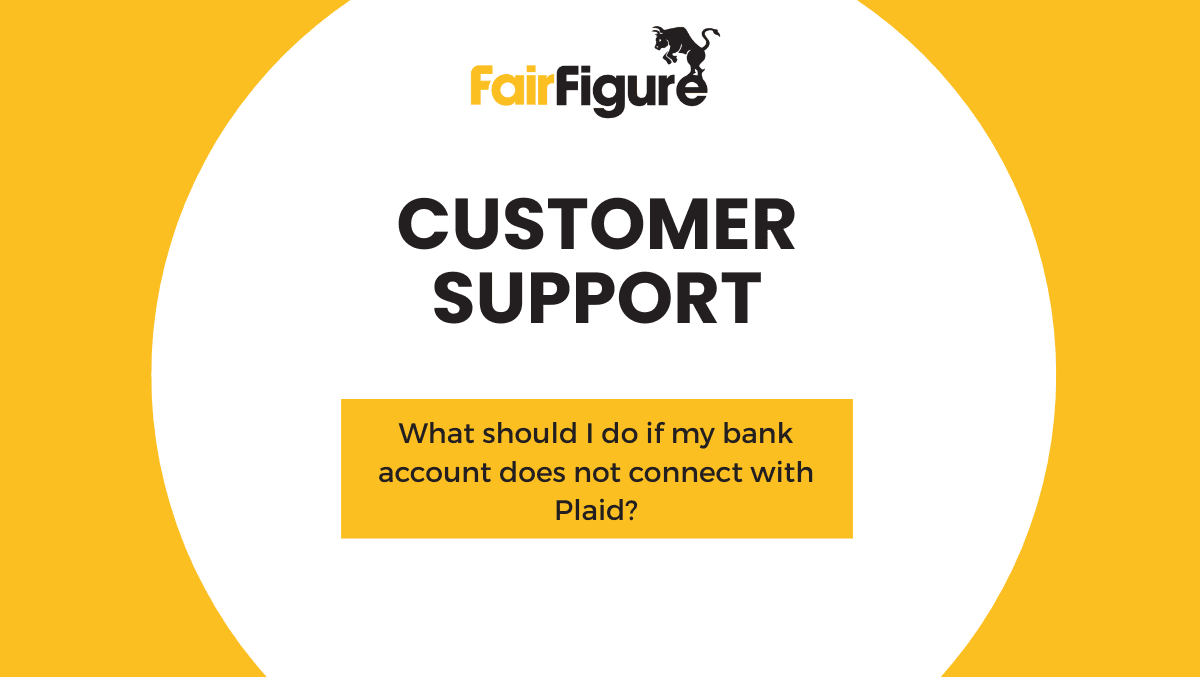
February 12, 2026
1 min read
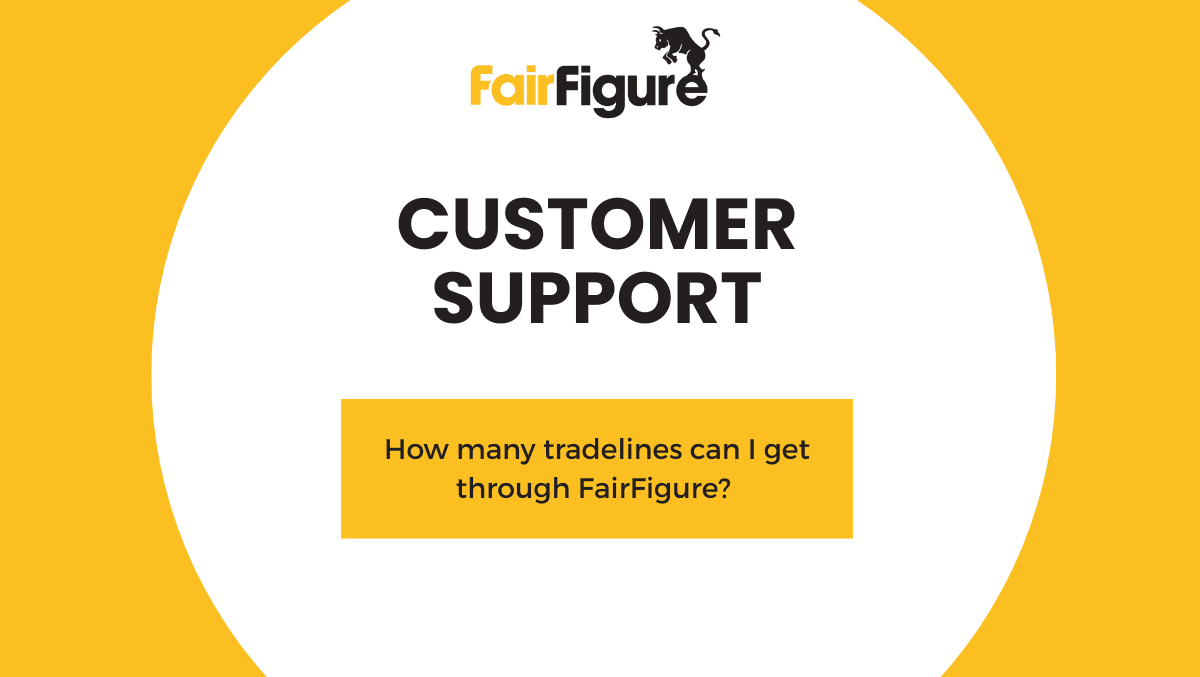
February 12, 2026
1 min read
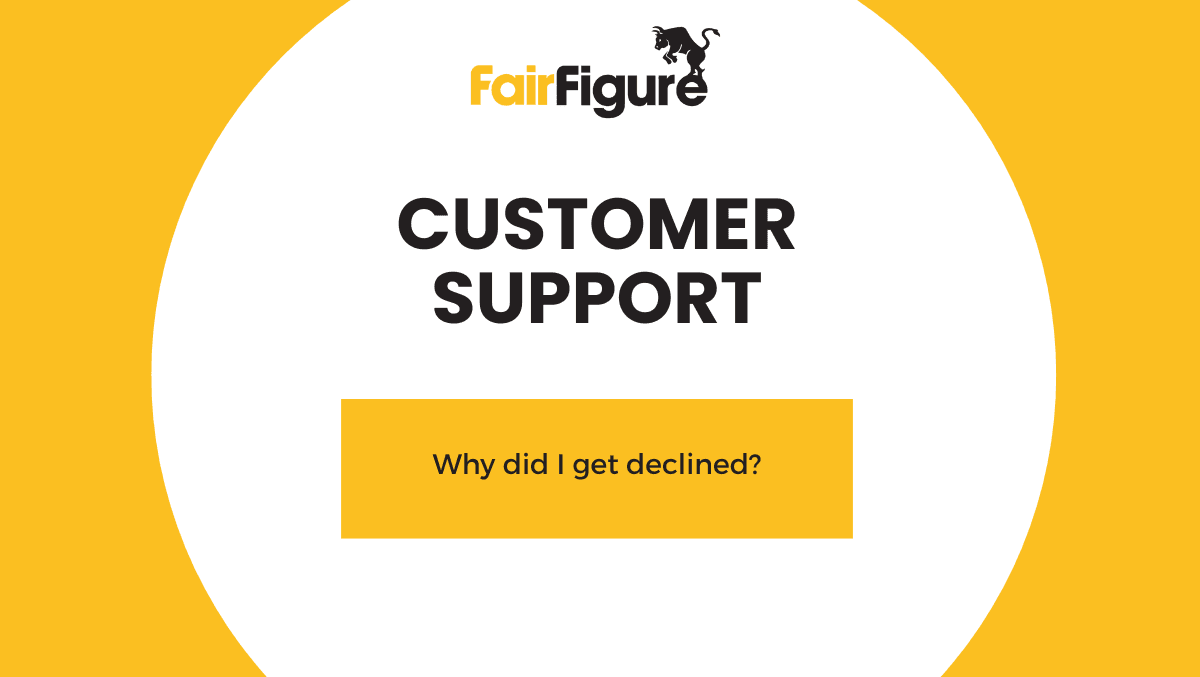
February 12, 2026
1 min read

Start your credit building journey for your business
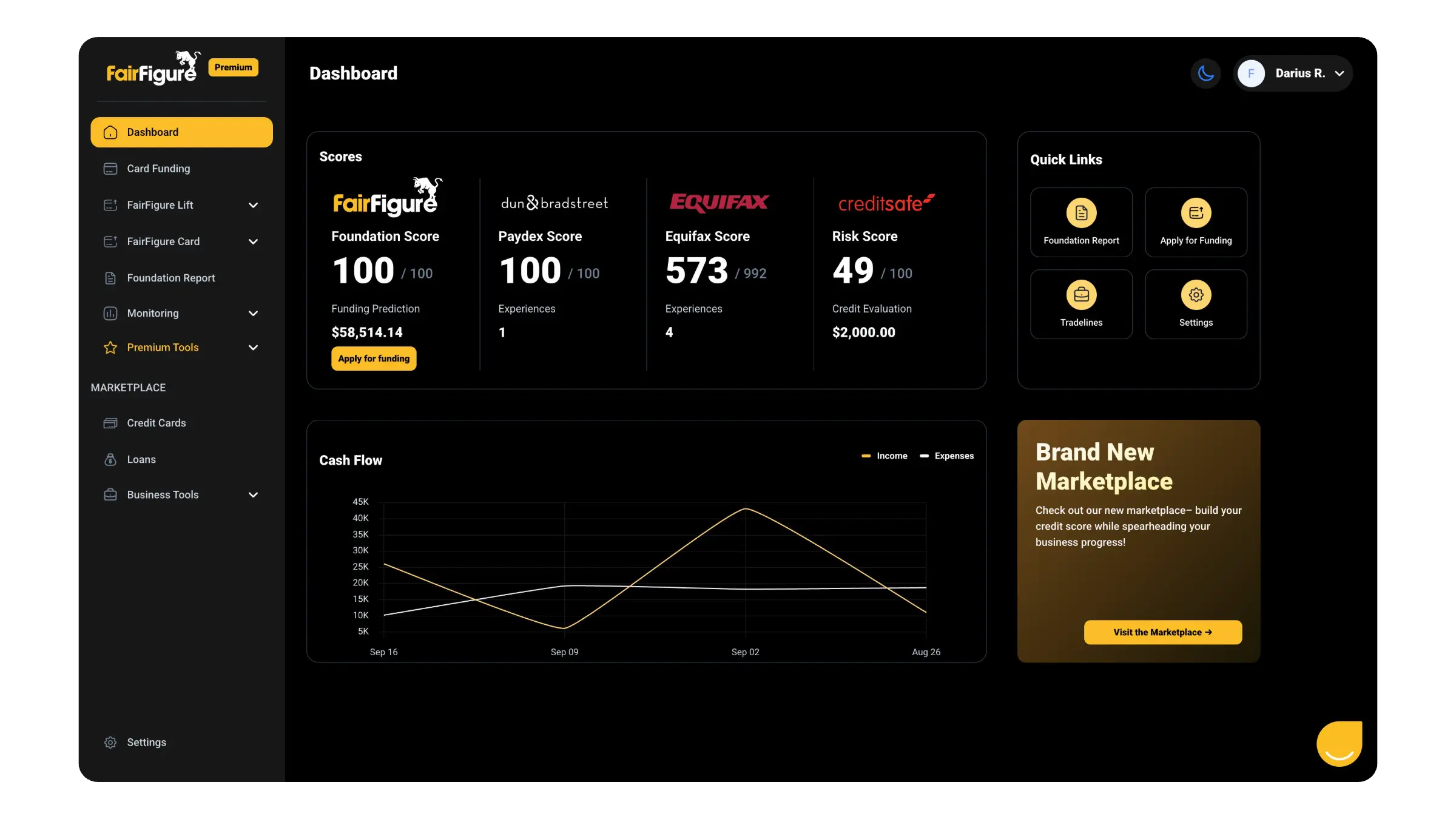
Start your credit journey now with FairFigure